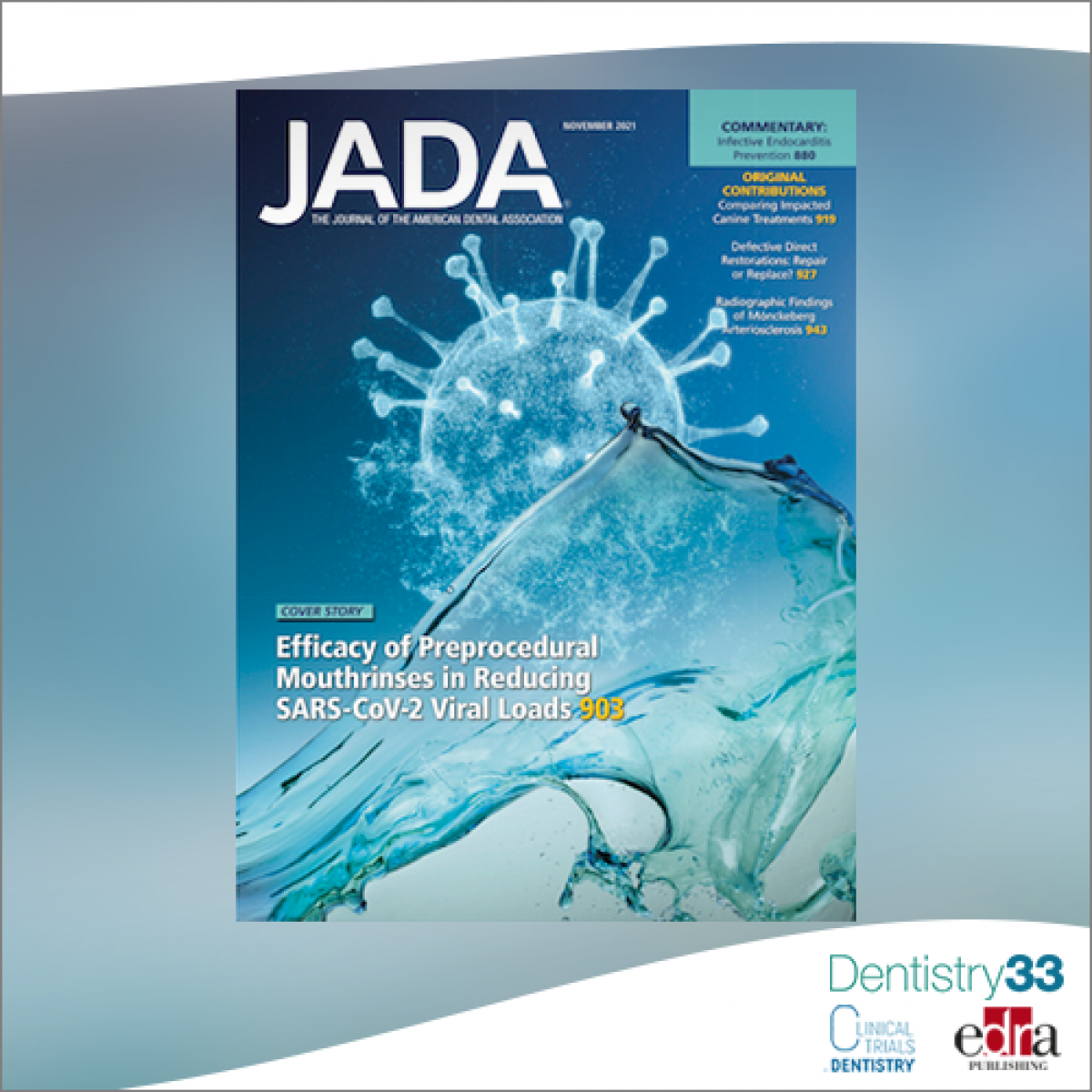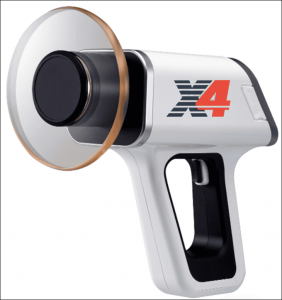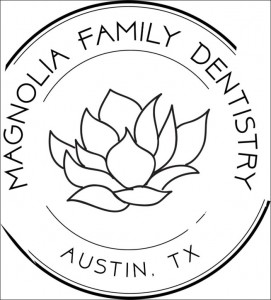
Mouth rinses reduce SARS-CoV-2 in saliva, new research on JADA
Editorial Team
Mouth rinses can reduce the SARS-CoV-2 viral load in saliva, according to a study published in the November issue of The Journal of the American Dental Association.
The cover story, "Estimating Salivary Carriage of Severe Acute Respiratory Syndrome Coronavirus 2 in Nonsymptomatic People and Efficacy of Mouthrinse in Reducing Viral Load: A Randomized Controlled Trial," looked at the viral load in the saliva of 201 people and detected SARS-CoV-2 in 23% of asymptomatic, 28% of presymptomatic, 99% of symptomatic and 60% of postsymptomatic participants. However, both the frequency of detection and the amount of viral load were significantly lower in asymptomatic and presymptomatic participants than symptomatic and postsymptomatic participants.
"SARS-CoV-2 can be present in the saliva of asymptomatic and presymptomatic patients. Therefore, it is important for dental professionals to exercise optimal infection control protocols," said Purnima Kumar, D.D.S., Ph.D., corresponding author and professor at the Ohio State University College of Dentistry. "Mouthrinsing for 60 seconds can reduce the salivary loads of SARS-CoV-2 for 45 minutes. Therefore, there is wisdom in using preprocedural mouthwashes for all patients."
The researchers randomly assigned symptomatic participants to use a mouthrinse containing 15 milliliters of normal saline, 1% hydrogen peroxide, 0.12% chlorhexidine gluconate or 0.5% povidone-iodine. All four reduced the SARS-CoV-2 viral load in saliva, with a median reduction of 61%-89% at 15 minutes after rinsing and 70%-97% at 45 minutes. Neither the 15-minute reduction in viral load nor the persistence of reduction at 45 minutes differed among the rinses, but the extent of reduction correlated significantly with participants' initial viral load.
Other articles in the November issue of JADA discuss impacted canine treatments, whether to repair or replace defective direct restorations, and radiographic findings of Mönckeberg arteriosclerosis.
Source: www.jada.ada.org
 Related articles
Related articles
 Read more
Read more
Digital Dentistry 22 October 2025
Artificial intelligence in dentistry: Exploring emerging applications and future prospects
This narrative review aimed to explore the evolution and advancements of artificial intelligence technologies, highlighting their transformative impact on healthcare, education, and specific aspects...
Editorials 22 October 2025
She will examine how Medicaid adult dental coverage and preventive dental visits influence diagnosis and survival outcomes for oral and pharyngeal cancers.
Products 22 October 2025
Mid America Dental Sales, Inc. (MADS) is pleased to announce a permanent extension of the warranty on our reliable X4 handheld X-ray device to a best-in-class three years.
News 22 October 2025
As the live music capital of the country, the Austin area contains many aspiring musicians, but it also has artists, gig workers, and freelancers who have office-less lifestyles to pursue their...
News 22 October 2025
Concorde Career College–Grand Prairie alumna, Jennifer Allen, has been named “Graduate of the Year” by Career Colleges and Schools of Texas (CCST) in recognition of her academic achievement,...











